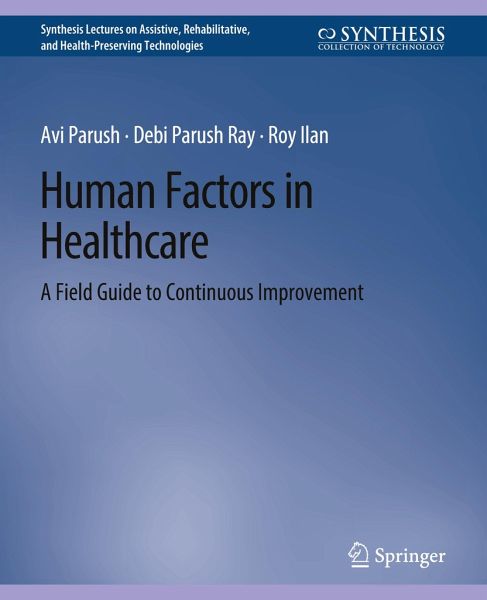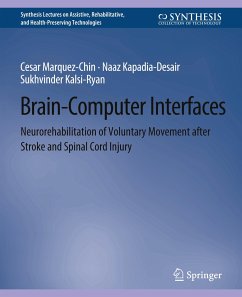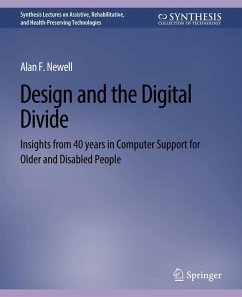
Human Factors in Healthcare
A Field Guide to Continuous Improvement

PAYBACK Punkte
0 °P sammeln!
Have you ever experienced the burden of an adverse event or a near-miss in healthcare and wished there was a way to mitigate it? This book walks you through a classic adverse event as a case study and shows you how.It is a practical guide to continuously improving your healthcare environment, processes, tools, and ultimate outcomes, through the discipline of human factors. Using this book, you as a healthcare professional can improve patient safety and quality of care.Adverse events are a major concern in healthcare today. As the complexity of healthcare increases-with technological advances a...
Have you ever experienced the burden of an adverse event or a near-miss in healthcare and wished there was a way to mitigate it? This book walks you through a classic adverse event as a case study and shows you how.
It is a practical guide to continuously improving your healthcare environment, processes, tools, and ultimate outcomes, through the discipline of human factors. Using this book, you as a healthcare professional can improve patient safety and quality of care.
Adverse events are a major concern in healthcare today. As the complexity of healthcare increases-with technological advances and information overload-the field of human factors offers practical approaches to understand the situation, mitigate risk, and improve outcomes.
The first part of this book presents a human factors conceptual framework, and the second part offers a systematic, pragmatic approach. Both the framework and the approach are employed to analyze and understand healthcare situations, both proactively-for constant improvement-and reactively-learning from adverse events.
This book guides healthcare professionals through the process of mapping the environmental and human factors; assessing them in relation to the tasks each person performs; recognizing how gaps in the fit between human capabilities and the demands of the task in the environment have a ripple effect that increases risk; and drawing conclusions about what types of changes facilitate improvement and mitigate risk, thereby contributing to improved healthcare outcomes.
It is a practical guide to continuously improving your healthcare environment, processes, tools, and ultimate outcomes, through the discipline of human factors. Using this book, you as a healthcare professional can improve patient safety and quality of care.
Adverse events are a major concern in healthcare today. As the complexity of healthcare increases-with technological advances and information overload-the field of human factors offers practical approaches to understand the situation, mitigate risk, and improve outcomes.
The first part of this book presents a human factors conceptual framework, and the second part offers a systematic, pragmatic approach. Both the framework and the approach are employed to analyze and understand healthcare situations, both proactively-for constant improvement-and reactively-learning from adverse events.
This book guides healthcare professionals through the process of mapping the environmental and human factors; assessing them in relation to the tasks each person performs; recognizing how gaps in the fit between human capabilities and the demands of the task in the environment have a ripple effect that increases risk; and drawing conclusions about what types of changes facilitate improvement and mitigate risk, thereby contributing to improved healthcare outcomes.












